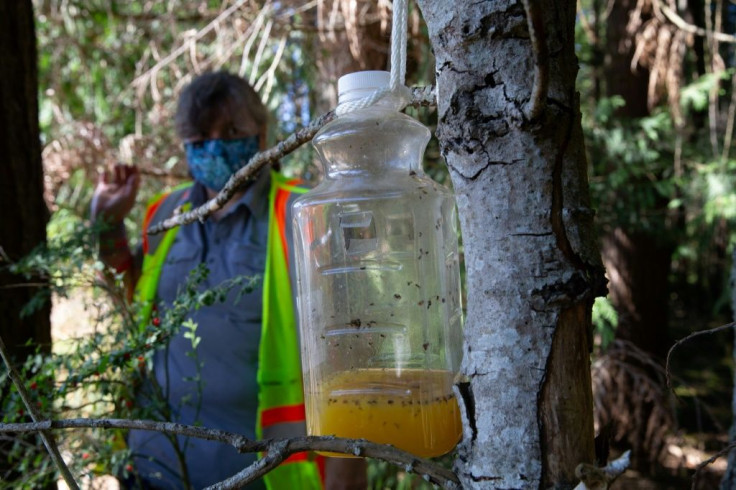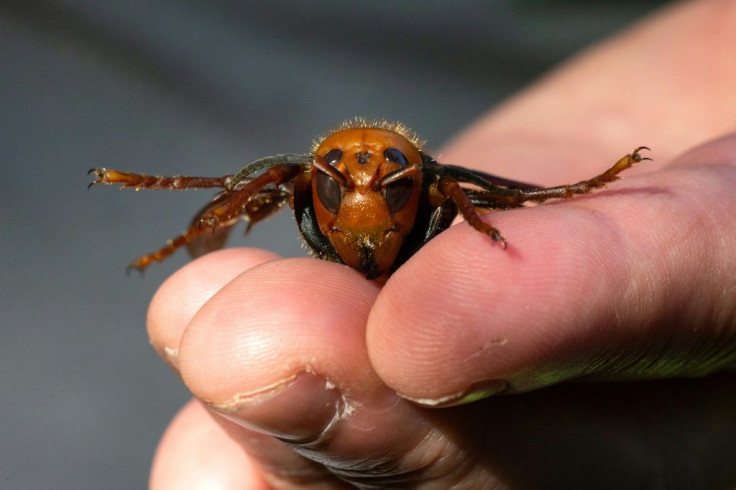First Ever Nest Of Asian Giant Hornets Found In US
After months of meticulous tracking, authorities in the western US state of Washington on Friday said they had uncovered the first ever nest of the deadly Asian giant hornet in the country.
The nest was found on Thursday by Washington State Department of Agriculture (WSDA) entomologists on a property in Blaine, near the border with Canada, the agency said in a statement.
It added that an attempt to eradicate the nest of wasps -- the world's largest hornet species also known as the "murder hornet" -- would take place on Saturday.

"The successful detection of a nest comes after a WSDA trapper collected two live Asian giant hornets on October 21 (Wednesday), caught in a new type of trap the agency had placed in the area," the statement said.
"Two more hornets, also living, were found in another trap the morning of October 22 when WSDA staff arrived in the area to tag the previously trapped hornets with radio trackers and follow one back to its nest," it added.
Scientists in the state have been actively searching for the Asian giant hornet since the first such insect was detected in December 2019 and after one of the wasps was trapped in July in Whatcom County, where Blaine is located.
Several more of the invasive pest not native to the US were subsequently caught, all in the same region.

The WSDA believes there was a good chance that there are more nests and "stopping this cold is very crucial," said Sven Spichiger, an entomologist with WSDA, during a press conference Friday afternoon.
"If it becomes established, this hornet will have negative impacts on the environment, economy, and public health of Washington State," the WSDA said.
It is unclear how the wasps -- which have orange and black markings and are nearly two inches (five centimeters) in length -- arrived in the US.
Scientists warn that unless the insect is eliminated in the next couple years, it could spread in North America and become permanently established.
The hornets, which are native to East Asia and Japan, usually don't attack people but they are known for decimating honeybee colonies.
The hornets slaughter honeybees by literally biting their heads off.
The hornets then occupy honeybee nests for up to a week or more, feeding on the pupae and larvae.
In Japan, where the insects are hunted and eaten, some 30 to 50 people die each year from their venomous and excruciating sting.
© Copyright AFP 2024. All rights reserved.





















